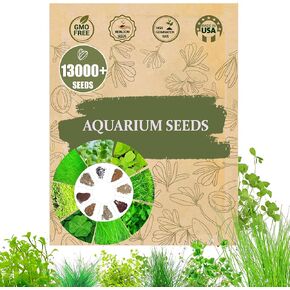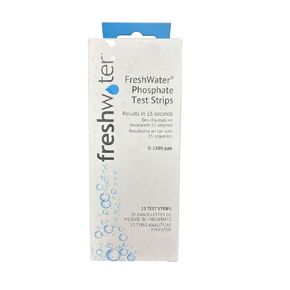- Shopping, made easy.
- /
- Get the app!
“Water is the most critical resource issue of our lifetime and our children's lifetime. The health of our waters is the principal measure of how we live on the land.” – Luna Leopold
According to the U.S. Environmental Protection Agency (EPA), the recommended pH range for drinking water is 6.5–8.5. The Total Dissolved Solids (TDS) level should be kept below 500 mg/L (500 ppm). For non-drinking water such as spring or bottled water, TDS should not exceed 1000 mg/L (1000 ppm).
According to the EPA, WHO, and EU, pH and TDS levels typically have no direct health effects on consumers.
However, they are critical water quality indicators, as they influence how water interacts with its surroundings. These interactions can affect the appearance, taste, and odor of drinking water and may signal problems in the water supply system that could impact public health.
𝐖𝐡𝐲 𝐒𝐡𝐨𝐮𝐥𝐝 𝐘𝐨𝐮 𝐌𝐞𝐚𝐬𝐮𝐫𝐞 𝐓𝐃𝐒 𝐚𝐧𝐝 𝐏𝐇 𝐋𝐞𝐯𝐞𝐥𝐬?
Pure, natural mineral water has no taste or smell. Changes in TDS and pH levels can affect the texture and taste, making the water less suitable for consumption.
Scientific research has revealed several reasons why monitoring TDS and pH in drinking water is essential:
*Taste – High TDS levels can make water taste salty or bitter.
*Health Concerns – While high TDS alone may not harm your health, elevated levels of harmful substances like lead or copper can cause illness.
*Cooking – TDS levels above 1000 ppm can alter the taste of food during cooking.
Q: What is the best TDS level for drinking water?
A: A TDS level between 50–500 ppm is generally considered ideal and safe. Levels below 50 ppm are considered excellent-quality drinking water.
Note: Water under 80 ppm is classified as soft; 80–160 ppm is moderately hard; and above 300 ppm is considered very hard.
Q: Is a low TDS level bad or harmful to health?
A: A TDS level above 1000 ppm is unsafe for drinking and should be avoided.
𝐎𝐭𝐡𝐞𝐫 𝐀𝐩𝐩𝐥𝐢𝐜𝐚𝐭𝐢𝐨𝐧𝐬:
TDS and pH play a vital role in making nutrients soluble for plants in hydroponic systems. They are also key environmental indicators for aquatic life.
𝐖𝐢𝐝𝐞 𝐔𝐬𝐞 𝐏𝐇 𝐌𝐞𝐭𝐞𝐫:
This TDS meter is ideal for a wide range of water quality testing needs, including water purification, aquaculture, hydroponics, pools & spas, and water treatment.
𝐏𝐥𝐚𝐧𝐭 𝐆𝐫𝐨𝐰:
Behind every healthy plant is a gardener who pays attention to detail. This PPM tester helps you easily monitor the key environmental factors for optimal plant growth.
TDS
Test Range:
0–9990 ppm (parts per million)
Accuracy:
±2% F.S.
Package Includes:
1x TDS Meter
1x Box
 ELEBOX Aquarium Background Poster, Undersea Water Plants Sea Anemone Coral Aquarium Decor Background Double Sides Fish Tank Background Sticker Decorations 10 Gallon 20 Gallon Tank 11.8"x24.4"
KWD 4.500
ELEBOX Aquarium Background Poster, Undersea Water Plants Sea Anemone Coral Aquarium Decor Background Double Sides Fish Tank Background Sticker Decorations 10 Gallon 20 Gallon Tank 11.8"x24.4"
KWD 4.500
 hygger Aquarium Strong Magnetic Glass Cleaner, Professional Fish Tank Algae Magnet Cleaning Tool with Scraper for 1.96-2.36 Inch Thick Glass Freshwater and Saltwater Tank, M
KWD 9.500
hygger Aquarium Strong Magnetic Glass Cleaner, Professional Fish Tank Algae Magnet Cleaning Tool with Scraper for 1.96-2.36 Inch Thick Glass Freshwater and Saltwater Tank, M
KWD 9.500
 Premium Aquarium Plant Seeds for Planting – 13,000+ Live Mixed Seeds, 8 Varieties – Easy-to-Grow Aquatic Greenery for Lush, Vibrant Fish Tanks
KWD 6.500
Premium Aquarium Plant Seeds for Planting – 13,000+ Live Mixed Seeds, 8 Varieties – Easy-to-Grow Aquatic Greenery for Lush, Vibrant Fish Tanks
KWD 6.500
 -8%
80093 Freshwater Phosphate Test Strips
KWD 5.500
-8%
80093 Freshwater Phosphate Test Strips
KWD 5.500